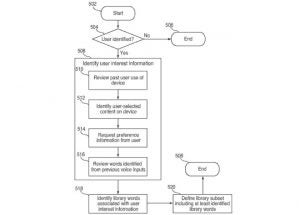Siri might soon be able to adapt its answers to the person it thinks is talking

As a general rule, virtual assistants will chat to anybody who speaks to them. This is fine for phone-based digital assistants, but can cause problems for smart speakers when lots of people stop by for a chinwag.
The smarter smart speakers have a way around this. Google Home introduced Voice Match, allowing the speaker to recognise a voice and provide their information without the awkwardness of having to ask who’s talking. Amazon too has support for multiple speakers with Voice Profiles (although still not in the UK, a year after its US launch), but what about Apple?
Related: Google Home vs Amazon Echo
Well, according to a new patent application Siri may also be getting an intelligence upgrade soon.
The patent, filed with the USPTO (United States Patent and Trademark Office) discusses “user profiling for voice input processing.” That means that your Apple HomePod could hear a voice, figure out who’s talking and only provide information relevant to them – the content of their calendar, or details of their commute, say. The flowchart below seems to outline how that would work in practice:

Intriguingly, the chart mentions building a library of words based on past interactions. It’s not clear whether this is just a fancy way of saying it’ll be better at guessing the person based on what they say, or whether Siri itself will change the words it uses depending on who’s talking, but it’s interesting all the same.
In practical terms, the latter sounds like a stretch. When we reviewed the Apple HomePod, we found Siri not to be the sharpest virtual assistant in the cloud, with it struggling to provide answers comparable to Alexa and Google Assistant.
Related: Google Assistant vs Alexa
In fact, it’s possible that the feature won’t appear in any form. It’s just a patent, and Apple is particularly prolific at patenting technology, some of which never gets used. Even if improving Siri’s smarts is on the agenda, patents certainly don’t indicate timescales, so, for now, you’ll just have to make do with sharing.
Would multi-user support improving your HomePod experience? Let us know on Twitter @TrustedReviews.


